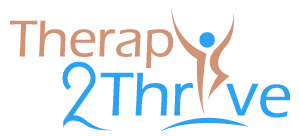Therapy2Thrive™
BLOG
925-998-3392
Discover 3 Major Stages of Stress
Have you ever had one of those mornings, where the alarm didn’t go off and you woke up late? As you rush around getting ready, you spill coffee on your only clean white blouse that matches your black and white poke-a-dot skirt. Now you are even more stressed, as you dig through your closet to find something to wear. By now you are over the top stressed, because you know you’ll be late to this morning’s meeting. Your heart is beating faster, sending extra blood to your arms and legs in case you need to run. This is known as the alarm stage or better yet, the fight or flight response.
We’ve all had a morning like this, but did you know there are three stages of stress? What was just described above is the first stage. It’s important to understand the different stages of stress and how the body responds to these stages. When we know what to look for it’s easier to identify signs of chronic stress in ourselves. The three stages of stress are the alarm stage, the resistance stage and the exhaustion stage. They were described by a Hungarian endocrinologist, Hans Selye. He was known as the “Father of Stress.”
We just reviewed the alarm stage. Now let’s consider the other two stages: resistance and exhaustion.
After your crazy morning, you finally get to work and you find that you can’t concentrate on your tasks. Your mind is wondering all over the place. You might even feel a little irritable or frustrated, but not sure why. You think you have calmed down from running late, but in the morning meeting there was a major problem and it stressed you out. Your body hasn’t really had a chance to recover from the morning and now it’s on high alert. If you don’t resolve the now ongoing stress, your body remains on high alert. Eventually, your body learns to adapt and live with a higher stress level. In this stage, your body releases stress hormones and your blood pressure remains elevated. If the resistance stage continues for too long of a period without pauses to offset the effects of stress, this can lead to the exhaustion stage.
Now you made it through the day. You feel tired and burned out. You can’t wait to get home. You jump into your car thinking you’ll have an easy drive home, only to find out the freeway is backed up. There’s an accident and traffic isn’t moving. You are sitting on the freeway watching the time click by. By the time, you finally get home you are passed fatigued. You are burned out and feel a little depressed. You have anxiety about going into the office tomorrow because of the trouble that was uncovered in the morning meeting.
This is the exhaustion stage, which is the result of prolonged or chronic stress. We all struggle with stress, but too much stress for long periods of time can drain you physically, emotionally, and mentally. Now, your body no longer has enough strength to fight stress. In the exhaustion stage you may be tempted to give up or feel your situation is hopeless.
Signs of exhaustion include:
- fatigue
- burnout
- depression
- anxiety
- decreased stress tolerance
The physical effects of this stage also weaken your immune system and put you at risk for stress-related illnesses. When stress is short-lived in the alarm stage it isn’t that harmful. But that’s not the case with prolonged stress. The longer you have stress in your life, the more harmful it is to your health. You also don’t want to remain in the resistance stage for too long and risk entering the exhaustion stage. Once you’re in the exhaustion stage your body is at health risk and depression can be a real concern.
If you would like to try a relaxation video link to our blog: Don’t Panic It’s Only Change. This blog offers a Forest Walk mediation.
If you find yourself stressed out for long periods of time, or feeling depressed enough that you wonder how cope with all the things going on in your life, give us a call. We are here to help you learn how to manage stress and thrive again!

Therapy2Thrive™ brings Hope for Healing
Our counselors at Therapy2Thrive™ provide compassionate, practical, and evidenced based practices to assist you in the therapeutic process to meet your goals and find hope to heal the challenges you are facing.
Contact our family counselor in Pleasanton for private consultation.
